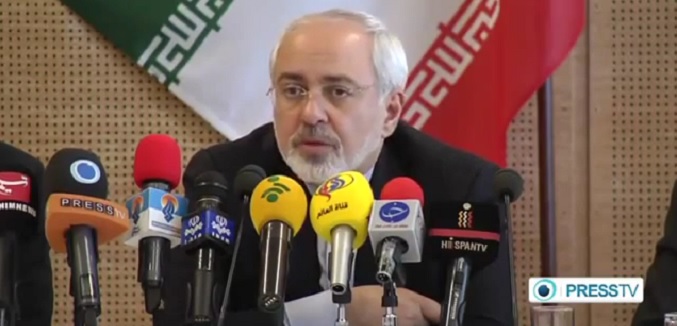Al-Monitor late Wednesday rounded up announcements made earlier in the day by the leaders of the House Foreign Affairs Committee and the Senate Foreign Relations Committee, in which Rep. Ed Royce (R-CA) and Sen. Robert Menendez (D-NJ) revealed that they would soon be holding a series of hearings to evaluate Iran’s compliance with its nuclear obligations.
The news comes a day after the Washington Free Beacon broke the news that the American Israel Public Affairs Committee (AIPAC) was potentially gearing up to back legislation aimed at increasing U.S. leverage going into upcoming talks with Iran:
The sanctions measure originally sponsored by Sens. Mark Kirk (R., Ill.) and Bob Menendez (D., N.J.) stalled earlier this year with 59 co-sponsors after the Obama administration launched a full court press to kill the legislation.
AIPAC, which had initially supported the bill, backed off its lobbying bid after Democrats and White House officials expressed opposition to the bill and argued that more time is needed to negotiate with Iran.
Now, with the six-month interim nuclear accord set to expire on July 20, AIPAC and its congressional allies are said to be preparing to breathe new life into the legislation, which just recently garnered its 60th cosponsor, a key procedural threshold.
The Kirk-Menendez bill would impose sanctions against the Islamic republic should it cheat on its obligations during talks or, at the end of those talks, refuse to put its nuclear program verifiably beyond use for weaponization. Both the Free Beacon and Al-Monitor contextualized their stories amid what the latter outlet described as “growing signs that lawmakers are fast running out of patience.”
Analysis has emerged in recent weeks that Iran is now mathematically certain to have busted through the caps on energy exports set by the interim Joint Plan of Action (JPA), which had eroded the sanctions regime, despite months of promises and ongoing declarations from administration officials insisting that violations of the remaining sanctions would not be tolerated.
Reuters on Wednesday conveyed leaks indicating that the P5+1 global powers and Iran were unlikely to conclude negotiations by the end of the JPA’s six-month negotiation period:
In theory, an extension to the high-stakes talks should not be a problem if all sides want it. But President Barack Obama would need to secure Congress’ consent at a time of fraught relations between the administration and lawmakers.
Iran, the United States, Britain, France, Germany, Russia and China included the July 20 deadline to reach a comprehensive agreement in an interim deal they reached in Geneva on Nov. 24.
The November agreement allowed for a six-month extension if more time was needed for a final deal to end sanctions on Iran and remove the threat of war.
An extension would allow up to half a year more for limited sanctions relief and limits on Iranian nuclear work as agreed in Geneva. To avoid an open conflict with Congress, Obama would want U.S. lawmakers’ approval to extend that sanctions relief.
A somewhat strange Dow Jones report appeared Wednesday afternoon implying that Iran and the U.S. had reached some kind of extension agreement. It is not clear that the report was entirely accurate.




